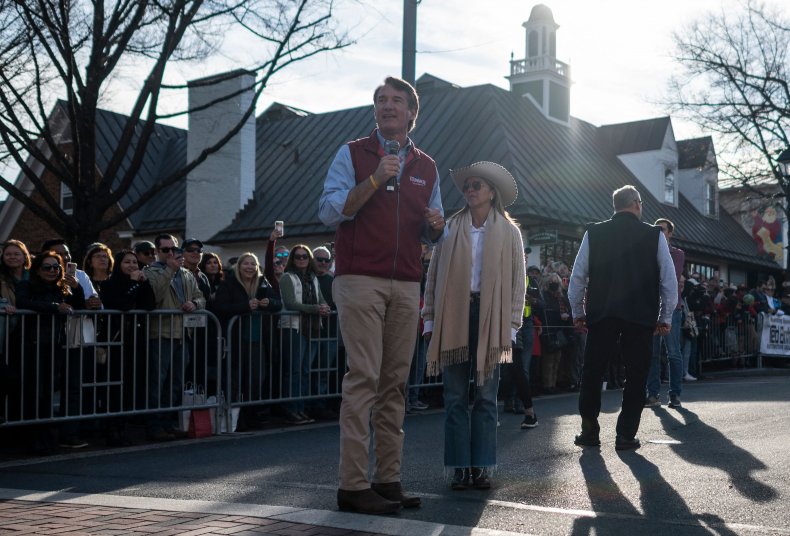What Glenn Youngkin Owes Virginia Parents
It’s no secret that parents are fed up.
Governor-elect Glenn Youngkin was able to claim victory in Virginia—a state that went for Joe Biden by 10 points just a year prior—by echoing parents’ frustrations with school closures and radical, divisive classroom content.
In a WFXR News/Emerson College poll, education claimed the top issue spot among likely voters, beating out jobs and COVID-19, along with more perennial concerns like health care and taxes. And Youngkin won parents’ support (polling at 56 percent to McAuliffe’s 42) by a greater margin than the general electorate.
Simply put, the governor-elect owes his seat to parents in the commonwealth, and soon it will be time to deliver on his campaign promises.
Radical curriculum content, from critical race theory to gender-bending ideology and even soft pornography in school libraries, did not spring forth overnight. The politicization of the education system was decades in the making, as teachers, administrators, and contractors all marinated in the underlying ideology. It will not be easy to steer schools away from their chosen path on these topics. Making election promises into a reality will require a multi-faceted, sustained policy effort.
These efforts should focus on three strategies: offering immediate leverage and options to parents through a broad school-choice program; ensuring total transparency so that parents can continue to monitor lessons; and supporting a state law forbidding racial essentialism and radical gender ideology in public school curricula.
Education choice can serve both as leverage in battles with districts, and as an exit strategy for parents frustrated that their voices are being ignored. During the campaign, Youngkin promised voters, “A student’s zip code cannot determine his or her destiny. Parents must be free to make the decision best for their children.” Real education choice would look like an extension for Education Savings Accounts—flexible accounts that follow the child to any educational opportunity—to all commonwealth families.
Youngkin should encourage the General Assembly to expand and reconfigure the state’s tax credit scholarship program, and immediately create Learning Loss Education Savings Accounts for students who failed the spring 2021 state assessment. Virginia can use federal funds provided to state and local governments through the American Recovery Plan to fund these education accounts.

ANDREW CABALLERO-REYNOLDS/AFP/Getty Images
Importantly, while Virginia’s charter school law is among the worst in the nation and requires an overhaul, most charter schools provide no escape from the woke ideology engulfing their traditional public counterparts. Nor are they an immediate solution, as any charter law update would take years to result in new schools. That’s too long for Virginia parents and students.
Virginia only has seven charter schools—a comically low number compared to other states. A “down payment” on parental choice in the form of adding 20 schools will barely impact districts, which desperately need the competition, or parents, who deserve true educational options.
Other non-negotiables for a Youngkin education agenda should include introducing a ban on CRT and gender ideology in the state legislature and demanding total transparency from districts about what children are learning.
On the campaign trail, Youngkin told parents, “We have abhorrent chapters in our history, we have great chapters in our history, we must know it all but let me be clear: I will ban Critical Race Theory at our schools.” Virginia parents expect him to follow through on this promise, and to evaluate the impact of the activist-drafted, state-mandated transgender policy as well.
The governor-elect also committed himself to transparency: “Our parents have been kept in the dark long enough. When I’m governor, schools will make teaching materials, textbooks, lesson plans all available to parents who request them.” Parents should not have to commit long hours to FOIA requests, and pay districts prohibitively high fees, to see what a day in the classroom will bring their children.
In addition, with the new Omicron variant causing uncertainty, Youngkin must remain a bulwark against what will undoubtedly be another fear-fueled effort by teachers’ unions to shut down in-person schooling again. Although mandated by state law to offer in-person education this year, Virginia school districts have been announcing last-minute closures throughout the fall. Without school choice or clear policy direction from the state, parents are powerless to stop this accelerating trend.
Some of these policy solutions might seem overly grand in a moderate state like Virginia. But the reality is that education savings accounts are overwhelmingly popular, including with independents and moderate Democrats. And cultural topics long considered “divisive” by Beltway consultants and insiders—like removing critical race theory from the classroom—are actually areas of broad agreement between moderate and conservative voters.
Leaning into these fights is what brought Glenn Youngkin his victory. Now he needs to commit to an education agenda that matches the rhetoric voters of all political backgrounds enthusiastically supported.
Inez Stepman is a senior policy analyst for the Independent Women’s Forum. Virginia Gentles is a senior fellow at the Independent Women’s Forum.
The views expressed in this article are the writers’ own.







